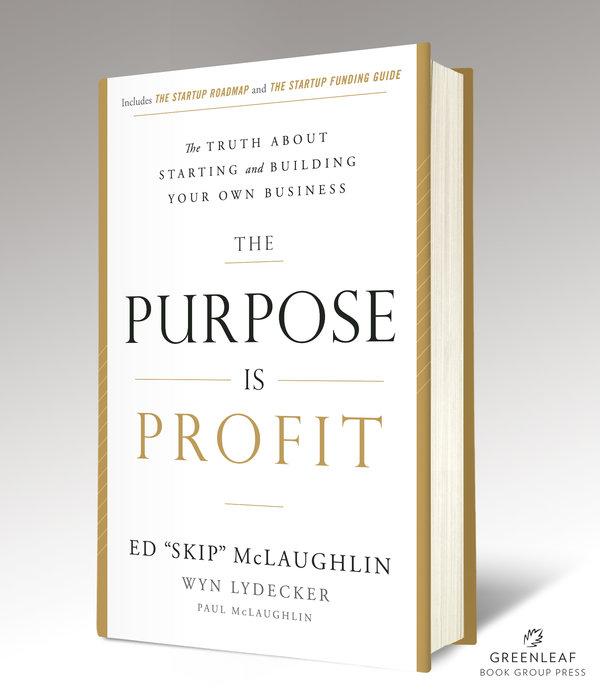By Ed McLaughlin and Wyn Lydecker
I recently read “Freeing Up Intelligence,” in Scientific American, and it got me thinking about entrepreneurship and success. The article talks about how scarcity of any kind – money, time, and other resources – affects our mental abilities. In a scarce situation, when we are strapped for money, time, or cognitive bandwidth, we can lose up to 14 IQ points in our decision making. Applying this research would mean a completely different work-life balance than the one I grew up with or believe in.
When I started my company, USI, I worked every available hour. When you are starting up, the one resource you have the most of is time. My time was the only resource over which I had absolute control, so it’s the one I used most extensively. One of USI’s competitive advantages was our ability to react faster than our bigger, more lumbering corporate competitors. We could turn around decisions and assignments within a 24-hour window. Of course, in such a small operation, we all worked constantly, sometimes using all 24 hours in our day. We didn’t have the manpower that bigger firms could throw at a problem, so we had to make up the man hours ourselves. In the end, the blood, sweat, and tears I spent dedicated to growing USI paid back in the form of a successful company. The people who worked with me felt the same way. Hard work without letting-up won the day.
How different would my story have been if the research about scarcity and its effect on cognition had been available at the time? I do not think I would have done anything differently. If you look at successful and striving startups today, the entrepreneurs and their management and development teams expend the same amounts of energy I did. Even with the move to the lean methodology, popularized by “The Lean Startup,” business owners still believe that most problems can be solved by working harder, and most customers can be won over by fast response. Interestingly, the lean methodology of product development counsels entrepreneurs to develop and perfect their product through an iterative process that includes thinking, evaluating, developing and running tests, and studying results. It requires making decisions whether to pivot or persevere.
All these activities require brain power and decision making ability. In such cases, taking a break, eating a meal, getting some sleep, and looking at the business from a different perspective would pay off. I would certainly want my team to be using their full amount of IQ and brainpower on such work. The entrepreneurs and their teams have to “work smarter.” Still, I would venture to say that the teams using lean methodologies will still wind up working 80 to 100 hours per week. Time is available; money is not, and most startups have to work fast enough to start generating revenue before the funding runs out. Working such hours is part of the price you pay for the freedom you have as an entrepreneur.
When my team had a problem to solve, we always stayed with the problem, working it from different angles until we found a solution. We would refer to these overnight problem-solving sessions as “camp-outs”. In my experience, working this steadily has almost always paid off.
While a lot of people expect a work-life balance when they’re employed by someone else with a regular paycheck and benefits, as an entrepreneur you cannot expect any of that. The nature of the risk in being an entrepreneur is a set of scarcities in itself, as we are strapped for cash and fixated on thinking of what needs to happen next. The research in the Scientific American story seems to indicate that scarcity affects us whether we like it or not. Maybe the best we can do is to be aware of the scarcities we are experiencing, and how they affect us. Then, we can take the knowledge and use it to make the best decisions possible for our own lives, the people we work with, and the business we are building.
I did live with scarcity, and I worked long hours. But being an entrepreneur has allowed me to have more freedom, more fun, and more wealth than I ever could have if I had stayed in a corporate job. When you have passion for what you are doing, working nonstop is far different than working for someone else in a job that you don’t love.
Ed McLaughlin is the author of The Purpose Is Profit: The Truth about Starting and Building Your Own Business, along with co-authors Wyn Lydecker and Paul McLaughlin. The Purpose Is Profit (Greenleaf Book Group) is available in bookstores now.

Order The Purpose Is Profit here.
Copyright © 2016 by Ed McLaughlin All rights reserved.





Leave A Comment